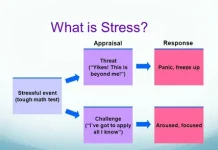Managing taxes in real estate isn’t just about filing returns—it’s about strategic planning, smart deductions, and building long-term wealth. That’s where a real estate tax consultant becomes an essential part of your team. Whether you’re a landlord, investor, developer, or managing commercial properties, the expertise of a qualified consultant can save you thousands annually and prevent costly mistakes.
In this article, we’ll explain who a real estate tax consultant is, what they do, who should hire one, and how they help you legally reduce tax burdens while growing your real estate portfolio with confidence.
What Does a Real Estate Tax Consultant Do?
A real estate tax consultant is a tax expert who specializes in advising clients on the complex tax regulations that apply specifically to real estate. Their goal is not only to keep you compliant but also to uncover savings opportunities that traditional tax preparers may miss.
Services a real estate tax consultant typically offers include:
- Advising on property purchase and sale strategies to reduce capital gains
- Structuring rental and investment income for tax efficiency
- Helping with 1031 exchanges, cost segregation, and depreciation planning
- Entity formation and restructuring for tax benefits
- Reviewing multi-state tax implications
- Forecasting property tax obligations across various jurisdictions
- Providing audit defense and IRS representation when necessary
Unlike general CPAs, a real estate tax consultant dives deep into the real estate tax code and customizes advice based on your specific goals and portfolio.
Why Real Estate Investors Need a Tax Consultant
Real estate comes with significant tax opportunities—but also complex risks. Failing to use the right deductions, or misunderstanding IRS classifications, can lead to penalties or overpaid taxes. A knowledgeable real estate tax consultant ensures your investments are protected and optimized.
Here’s why investors rely on real estate tax consultants:
- Rental income and property sales are taxed differently from regular income
- Depreciation rules vary based on asset type and use
- 1031 exchange deadlines and qualifications must be met precisely
- Passive activity loss limitations can restrict deductions
- Real estate professional status can unlock major tax savings
A real estate tax consultant stays current with changes in tax law so you don’t have to, making sure you’re always aligned with the latest IRS guidelines.
Key Benefits of Working with a Real Estate Tax Consultant
Hiring a real estate tax consultant isn’t just about tax filing—it’s a strategic decision that can increase your net profits, protect your assets, and help you scale your business more effectively.
Here are the major benefits:
- Maximized deductions: Consultants identify tax write-offs like mortgage interest, insurance, repairs, travel, depreciation, and more.
- Strategic timing: They help plan the best times to buy or sell properties based on tax impact.
- Improved cash flow: Keeping more of your income means you can reinvest it back into your portfolio.
- Customized tax structures: Whether you’re operating as an LLC, S-Corp, or partnership, your consultant ensures you’re set up for success.
- Audit protection: A qualified real estate tax consultant can prepare documentation and support you in case of IRS audits.
If you’re serious about maximizing your investment income, working with a real estate tax consultant gives you a major advantage.
Who Should Hire a Real Estate Tax Consultant?
Not every property owner needs a consultant, but those with more than one property or those involved in real estate as a business or long-term investment should strongly consider one.
You’ll benefit from a real estate tax consultant if you:
- Own multiple rental properties or manage a portfolio
- Flip houses or invest in commercial real estate
- Operate short-term vacation rentals or Airbnb units
- Want to complete a 1031 exchange
- Are forming or restructuring a real estate business
- Earn income from out-of-state properties
- Are planning to pass real estate on to heirs
- Want to be treated as a real estate professional for tax purposes
A real estate tax consultant tailors their approach to your property type, business goals, and tax risk tolerance.
Real Estate Tax Strategies Used by Consultants
A great real estate tax consultant goes beyond compliance—they help you implement smart strategies that increase profitability.
Here are some of the most effective tax strategies consultants may use:
- Depreciation schedules: Structuring depreciation to reduce taxable income annually.
- Cost segregation studies: Accelerating depreciation on specific building components for greater deductions upfront.
- 1031 exchanges: Deferring capital gains tax by reinvesting profits into like-kind properties.
- Installment sales: Spreading gains over several years to reduce immediate tax impact.
- Entity optimization: Choosing the best legal structure for liability protection and tax efficiency.
- Passive income rules: Managing passive activity losses to increase deductions.
- Opportunity Zone investing: Deferring and potentially eliminating capital gains by investing in qualifying areas.
Every real estate tax consultant will use a combination of these tools depending on your unique financial situation.
What to Ask When Hiring a Real Estate Tax Consultant
Finding the right consultant is critical. When choosing a real estate tax consultant, you want someone with experience, knowledge, and a client-focused mindset.
Questions to ask before hiring include:
- How many real estate clients do you currently work with?
- Are you experienced with cost segregation and 1031 exchanges?
- Can you help with entity formation for real estate investing?
- How do you stay updated on real estate tax law changes?
- Do you offer year-round planning or just seasonal filing?
- Will you represent me during an IRS audit if necessary?
The right real estate tax consultant will provide clear answers, a track record of success, and a collaborative approach that fits your investing style.
Comparing a Tax Consultant with a Tax Preparer
It’s important to understand the difference between a real estate tax consultant and a typical tax preparer. A tax preparer focuses on data entry and tax return filing. A consultant focuses on planning, strategy, and advisory.
Here’s a quick comparison:
| Role | Tax Preparer | Real Estate Tax Consultant |
| Focus | Compliance and filing | Strategy and long-term planning |
| Experience with real estate | Limited | Specialized |
| Services | Tax return only | Tax planning, filing, consulting |
| IRS audit support | Often not included | Usually included |
| Entity formation advice | Rarely offered | Commonly provided |
For those serious about growing in real estate, a real estate tax consultant offers far more value than a standard tax preparer.
When to Hire a Real Estate Tax Consultant
Timing is everything when it comes to tax planning. Don’t wait until tax season to start looking for a real estate tax consultant. Hiring early allows for proactive planning, not just reactive cleanup.
The best times to hire include:
- Before buying or selling an investment property
- When forming a new LLC or business entity
- After acquiring a second or third property
- When transitioning into full-time real estate investing
- Before conducting a 1031 exchange
- At the start of a new tax year to plan ahead
A real estate tax consultant can save you the most when they’re involved early in the decision-making process—not after the fact.
Cost of Hiring a Real Estate Tax Consultant
Fees for a real estate tax consultant vary depending on complexity, number of properties, and level of service. While it may cost more upfront than doing your own taxes, the long-term savings and reduced risks often make it well worth the investment.
Typical fee ranges include:
- Tax filing with 1–2 properties: $500 – $900
- Strategic consulting for 3+ properties: $1,000 – $2,500+
- Ongoing tax planning: $100 – $300 per month
- 1031 exchange support: $500 – $1,000+
- Cost segregation studies: $2,000 – $10,000 (one-time)
Even if you’re paying more initially, a real estate tax consultant often saves you significantly more by maximizing deductions and avoiding costly errors.
Final Thoughts: Why Every Property Investor Needs a Real Estate Tax Consultant
Real estate is one of the most tax-advantaged investments available—but only if you know how to navigate the rules. A trusted real estate tax consultant helps you understand what’s deductible, what’s risky, and what’s possible when it comes to taxes and property ownership.
Whether you’re a first-time landlord or a full-time investor, the guidance of a qualified real estate tax consultant can mean the difference between overpaying and winning at tax season. Don’t wait until it’s too late—bring a consultant onto your team and build a smarter, stronger future in real estate.






